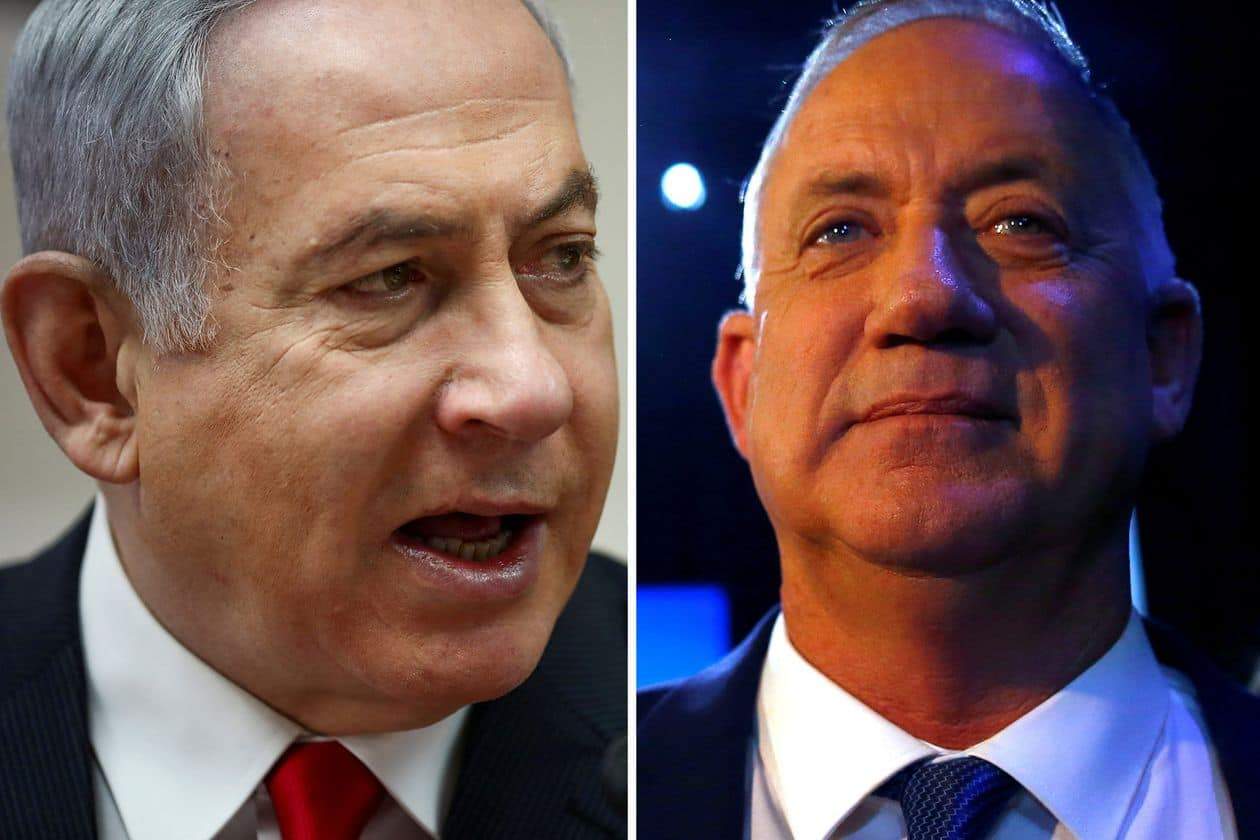Israel’s High Court Hears Challenges to a Unity Government Led by Netanyahu

Israel’s high court on Sunday heard petitions against Prime Minister Benjamin Netanyahu forming a government while under indictment, with a potential ruling that could lead to another election as the country grapples with the coronavirus pandemic.
Mr. Netanyahu and his rival Benny Gantz agreed last month to form a unity government after three inconclusive elections in a year. Both said the deal would help strengthen the country’s fight against the pandemic. But they have faced pushback from nongovernmental organizations, advocacy groups and demonstrators who say the deal shouldn’t leave Mr. Netanyahu in power while he faces bribery, fraud and breach of trust charges.
The two-day hearings, held by a panel of 11 judges and broadcast live amid the coronavirus restrictions, will review eight separate petitions challenging the power-sharing deal between Messrs. Netanyahu and Gantz.
On Sunday, the court considered whether Mr. Netanyahu can serve as prime minister while under indictment, which Israeli law doesn’t explicitly prevent. The court on Monday will weigh the legality of the coalition agreement, a complicated contract aimed at incentivizing both sides to stick with the deal amid deep mistrust.
A court spokesperson said a decision is expected some time this week though there is no clear time frame.
Mr. Netanyahu’s trial for bribery, fraud and breach of trust is set to begin later this month after a March hearing was delayed due to coronavirus restrictions on the court. The Israeli leader has denied wrongdoing and has fiercely criticized Israel’s courts and police for political interference and overreach.
Avichai Mandelblit, Israel’s attorney general who indicted Mr. Netanyahu last year, issued an opinion last week that he doesn’t believe there is any legal obstacle to Mr. Netanyahu forming and leading the next government despite the criminal charges.
Opponents of Mr. Netanyahu have said the premier’s repeated attacks on Israel’s courts and its democracy are a dangerous assault on the country’s institutions.
In the courtroom Sunday, Mr. Netanyahu’s lawyer Michael Rabello said that the judges don’t have a right to intervene against over two million people who voted for parties that backed Mr. Netanyahu to be prime minister.
“How can it be that this honorable panel of judges can replace the voters. Everyone knew that there were indictments,” Mr. Rabello said.
One of the judges, Menachem Mazuz, responded, “The question isn’t how many people voted for Netanyahu, but whether [the court] has authority or does not.”
Eliad Shraga, the head lawyer for the Movement for Quality Government in Israel, an advocacy group that is one of the petitioners, urged the court to consider the seriousness of the offenses Mr. Netanyahu is accused of. He said lawmakers’ backing is not necessarily voters’ expression of support.
“The lawmakers do not represent the will of the people. They are expressing other hidden desires, to be ministers and deputy ministers,” said Mr. Shraga.
Hundreds of Israelis demonstrated against the coalition deal in Tel Aviv on Saturday, standing more than two feet apart in organized rows aimed at keeping social-distancing rules to prevent the spread of the coronavirus. Protesters held signs calling Mr. Netanyahu “crime minister,” and said the deal would keep a corrupt leader in place.
The deal would see Mr. Netanyahu serve first as prime minister, with Mr. Gantz taking over the position in October 2021. There are many safeguards in place meant to preserve it that will require new laws to be passed, including amending Israel’s basic laws to allow for a prime ministerial rotation system.
Israel’s parliament must pass the laws included in the coalition deal by Thursday, a deadline it faces to back a candidate to form a government or else go to new elections. The Knesset is unlikely to support the new government if the laws can’t be passed.
Analysts said the High Court has no official deadline to weigh in but will probably use the Thursday deadline as a guide because its opinion will so heavily influence the political situation in the country.
Political commentators in Israel expect that the court will allow Mr. Netanyahu to form a government but could strike down some parts of the coalition agreement. Many predict noninterference.
If the court does strike down parts of the accord, Messrs. Netanyahu and Gantz will have to decide whether to move ahead and under what terms.
“There has been a sense that Netanyahu has not been enthusiastic about this unity government or coalition,” said Yuval Shany, vice president of research at the Jerusalem-based Israel Democracy Institute. “If there is going to be significant intervention then Netanyahu will have the political option to walk away from the deal.”
Mr. Netanyahu has faced criticism from his right-wing allies and members of his own party for the deal, which gives Mr. Gantz’s Blue and White an equal number of ministerial roles even though Likud has more seats in the government. Polls also show that Mr. Netanyahu could win a decisive victory in a fourth election, though analysts said positive effects from the coronavirus emergency seen in the surveys could fade by then.
Mr. Gantz formed the Blue and White alliance last year, created as a broad coalition to unseat Mr. Netanyahu, the country’s longest serving leader. He splintered the alliance and joined Mr. Netanyahu last month, saying the coronavirus emergency necessitated compromise to end the political deadlock.
Israel has 16,193 cases of the coronavirus, including 9,634 people who have recovered and 230 people who have died. The country began a gradual reopening last week and continued it on Sunday with a limited reopening of schools.
Photo: Israeli Prime Minister Benjamin Netanyahu, left, and his rival Benny Gantz agreed last month to form a unity government after three inconclusive elections in a year. - FROM LEFT: ODED BALILTY/PRESS POOL; CORINNA KERN/REUTERS











